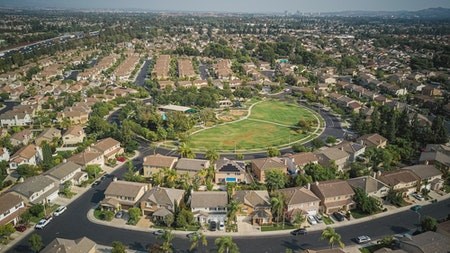Those who own sectional title properties will be aware of a monthly charge for CSOS on their levy statements. This service was instituted in January 2017, and stands for Community Schemes Ombud Service. It was established by the South African government to ensure good governance within community schemes, such as sectional title, homeowners’ associations, retirement complexes, share blocks and housing cooperatives. All of these housing schemes are legally bound to register with CSOS.
This ombud service has a number of duties:
- Regulate, monitor and quality assure all community schemes governance documentation.
- Provide training for conciliators, adjudicators and other employees of the CSOS.
- Custodian of governance documentation.
- To preserve and provide public access (electronically or by other means) to community schemes.
- Promote good governance of community schemes.
- Provide education, information, documentation and other such services as may be required to raise awareness to owners, occupiers, executive committees and other persons or entities who have rights and obligations in community schemes, as regards those rights and obligations; and to Deal with any matters as may be necessary to give effect to the objectives of the CSOS Act.
Most importantly, CSOS provides a dispute resolution service, which is considered to be simple, inexpensive, and relatively fast as opposed to arbitration through a court, which prior to 2017, was the only recourse for a complainant. Dispute resolution is really where a CSOS levy payer really reaps the benefit.
CSOS Complaint
A CSOS complaint is a formal grievance that is lodged by a community scheme resident.
The five most common reasons for lodging a CSOS complaint, be that by a homeowner, tenant, or other community scheme stakeholder, are:
- Breaches of conduct rules: Allegations of behavior or actions that contravene the conduct rules established within the community scheme, such as noise disturbances, unauthorised alterations, or improper use of common areas.
- Financial disputes: Disputes related to the management, administration or allocation of funds within the community scheme, such as misappropriation of funds, failure to provide accurate financial statements, or improper budgeting.
- Governance issues: Concerns regarding the manner in which the community scheme is managed, such as improper election procedures, lack of transparency, or conflicts of interest among the scheme executives.
- Maintenance and repair disputes: Complaints pertaining to the maintenance and repair of common property or shared amenities within the community scheme, such as inadequate maintenance, delayed repairs or disputes over responsibility for maintenance costs.
- Disputes with service providers: Grievances arising from conflicts or dissatisfaction with service providers contracted by the community scheme, such as security companies, maintenance contractors or cleaning services.
Fee structure and exemption
The levy amount per scheme is different, but what is reassuring is that by law that figure must not exceed R500.00 per annum per unit, meaning the maximum monthly levy imposed on the unit, can only be R40.00. The community scheme itself, as per its registration with CSOS, is responsible for collecting the CSOS levy, often through managing agents, and in advance of each annual quarter, which is when CSOS must receive it (eg: end March, June, September and December). Failure to comply will result in financial penalties at an interest rate of two percent per month.
Exemptions are applicable such as is applied to retired people living in mid-care/assisted living schemes, or frail care; those who receive South African Social Security Agency (SASSA) grants, and unit owners whose income is less than R5500.00 per month.





